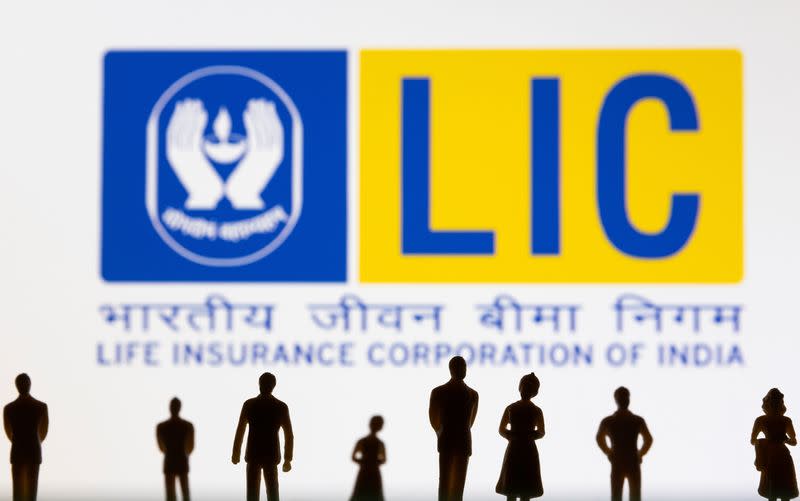New business margin at India's LIC falls, profit rises slightly

By Nikunj Ohri and Nishit Navin
BENGALURU (Reuters) -Life Insurance Corp of India, the country's biggest insurer, reported on Monday a drop in its new business margin in the fourth quarter, while its profit rose slightly.
Value of new-business margin (VNB), a measure of the profit margin of new premiums earned, fell to 17.2% for the quarter-ended March 31, from 19% a year earlier.
Mumbai-based Life Insurance Corp (LIC) said its VNB margins were curtailed by weakness in group business. LIC's total group business premium for the year-ended March 31 was down 5.5%. It did not report business premium earned for the quarter.
Group insurance covers a group of people in the same contract. It is generally taken by companies to provide insurance cover for their employees.
LIC posted a 2.5% year-on-year rise in its fourth-quarter profit to 137.63 billion rupees($1.66 billion) even as it reported a one-time gain by transferring funds of around 80 billion rupees to a shareholders' account and a tax reversal of 76.93 billion rupees.
The premium LIC collects from non-par policies is parked in a non-participating fund. Since 2022, the company has been transferring some of this premium every quarter to a shareholders' fund, aiding its profit and shoring up its solvency ratio.
LIC's solvency ratio, the measure of an insurer's ability to meet its long-term debt obligations, rose to 1.98 in the quarter from 1.87 a year ago. LIC had transferred 72.99 billion rupees to the shareholders fund in the same quarter last year.
LIC said its profit was reduced during the quarter as it started making provisions for a 119.60 billion rupees pension liability.
During the quarter, LIC's net premium income rose 15.6%, and it expects premium income to grow by double digits in fiscal year 2025.
LIC’s board also approved a 6 rupees per share dividend.
($1 = 83.1020 Indian rupees)
(Reporting by Nishit Navin; Editing by Susan Fenton, Mark Potter and Rod Nickel)


